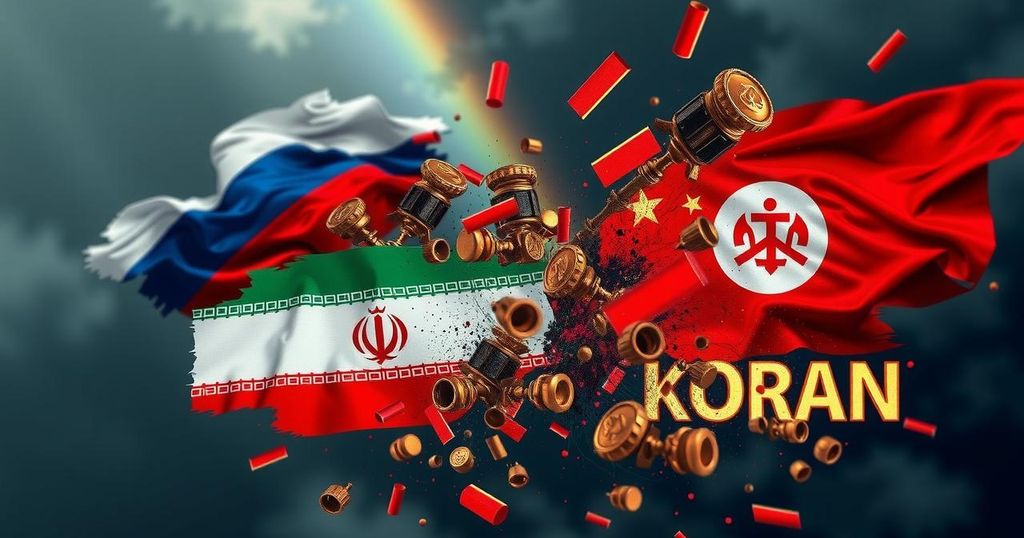NATO Chief Warns of Growing Threats from Russian Alliances with China, Iran, and North Korea
NATO Chief Mark Rutte has warned that Russia’s increasing cooperation with China, North Korea, and Iran poses significant threats to Europe and beyond. He emphasized the need for continued transatlantic unity and support for Ukraine amid rising concerns regarding future U.S. military aid. Both Rutte and French President Macron reinforced the importance of empowering Ukraine to enhance its negotiating position against Russia in light of recent developments.
PARIS (Reuters) – NATO Secretary General Mark Rutte recently articulated significant concerns regarding Russia’s expanding economic and military collaborations with China, North Korea, and Iran, which he believes pose a serious threat not only to Europe but also to the Indo-Pacific region and North America. Rutte conveyed this message during discussions with French President Emmanuel Macron, stressing the necessity of transatlantic unity and unwavering support for Ukraine in its ongoing conflict with Russia. Rutte highlighted the intricate dangers tied to military assistance to Russia from North Korea and Iran. He remarked, “At the same time, China backs Russia’s economy, enables its defence industry and amplifies its narrative all over the world stage.” He asserted that the nexus between Russia, North Korea, Iran, and China represents a formidable risk to peace and security across multiple continents. The NATO chief’s comments come amidst U.S. President-elect Donald Trump’s critical stance on Western aid to Ukraine, raising concerns in Kyiv and European capitals regarding future U.S. commitment. Despite notable losses, Russian military advancements have persisted, which includes clashes involving North Korean troops in Russia’s Kursk region. In response to the current dynamics, Rutte urged a recommitment to support Ukraine, emphasizing the need to escalate costs for Russian President Vladimir Putin and his allied authoritarian regimes. Rutte stated, “We must recommit to stay the course of the war and we must do more than just keep Ukraine in the fight.” President Macron echoed this sentiment, advocating for sustained support to Ukraine, affirming, “It is the only way towards negotiations and I want to be clear, when the time comes, nothing should be decided on Ukraine without the Ukrainians and on Europe without the Europeans.” This position highlights the critical nature of the upcoming months for Ukraine as it seeks to strengthen its negotiating power against Russia.
The ongoing conflict between Ukraine and Russia has heightened tensions between NATO and several authoritarian regimes, particularly those of Russia, China, North Korea, and Iran. The collaboration among these nations poses intricate geopolitical challenges. The support of countries like China not only bolsters Russia’s economy but also enhances its military capabilities. As the United States undergoes a change in administration, concerns have arisen regarding the future of Western support for Ukraine and the overall security dynamics in Europe and beyond.
In conclusion, NATO Secretary General Mark Rutte’s warnings about the intertwined threats posed by Russia’s alliances with China, North Korea, and Iran underscore the urgency of renewed Western commitment to support Ukraine. The essential collaboration among NATO allies is pivotal to countering these multifaceted threats to global peace and security. The upcoming months will be critical in shaping the trajectory of negotiations and the broader geopolitical landscape.
Original Source: www.usnews.com




Post Comment